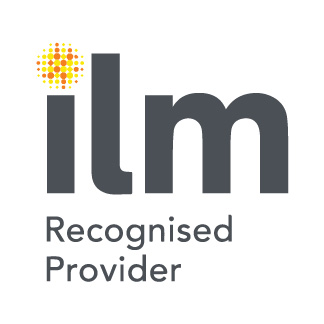Facilities Management (Certified By ILM)
| Start Date | End Date | Venue | Fees (US $) | ||
|---|---|---|---|---|---|
| Facilities Management (Certified By ILM) | 27 Oct 2025 | 31 Oct 2025 | Barcelona, Spain | $ 5,220 | Register |
| Facilities Management (Certified By ILM) | 10 Nov 2025 | 14 Nov 2025 | Barcelona, Spain | $ 5,220 | Register |

Facilities Management (Certified By ILM)
| Start Date | End Date | Venue | Fees (US $) | |
|---|---|---|---|---|
| Facilities Management (Certified By ILM) | 27 Oct 2025 | 31 Oct 2025 | Barcelona, Spain | $ 5,220 |
| Facilities Management (Certified By ILM) | 10 Nov 2025 | 14 Nov 2025 | Barcelona, Spain | $ 5,220 |
Introduction
In the 21st century, organizations are facing ever more difficult challenges of rapid, unpredictable change and cut-throat international competition. The need is for outstanding and continuously improving levels of customer service and satisfaction. This requires maximizing the performance of the key organizational resource that delivers this “our greatest asset” – our people. Competitive pressures have led many organizations to delay and flatten the corporate hierarchy in order to become more responsive, faster, and more innovative. This means maximizing the potential and abilities of all “our greatest assets”. Different situations will require different leadership styles, and leaders need to be able to select the right style at the right time. But the overriding imperative is to move from compliance-based to high-performance commitment based organizations, and there is, therefore, a need for different, more collaborative responses to situations that leaders face in their organizations. Effective leaders in the 21st century will change their philosophy from “command and control” to Facilitative Leadership, in which the key skills are those of team and group facilitation, and the role is one of a coach, partner, and inspiration.
Objectives
- Learn and apply the skills of facilitative leadership to enhance
- individual and work team performance
- Facilitate team meetings and individual performance issues
- effectively
- Improve productivity, quality and innovation in your organization
- Lead organizational change more effectively
- Analyze and recognize your strengths/weaknesses in facilitative
- leadership and formulate a personal development plan
How You Will Benefit
Training Methodology
ILM is the UK’s leading provider of leadership, management and coaching qualifications, and a City & Guilds Group Business. ILM offers a specialist suite of qualifications ranging from Level 2 to Level 7, which are awarded by The City and Guilds of London Institute. ILM also specialises in assessment, learning content, recognition and the accreditation of high-quality training in the fields of leadership, management and coaching.
ILM offers leadership and management qualifications through our network of accredited centres worldwide. Not only are ILM’s qualifications industry standard, ranging from team-leading programmes to diplomas for senior directors, but they help retain and motivate staff too
Who Should Attend?
Facilities Management professionals staff.
Course Outline
Module I:
Introduction – The Nature and Benefits of Facilitative Leadership
- Identify the differences between leaders and managers
- Analyze the need for situational leadership
- Understand your preferred style, approach and source of power in
- leadership
- Learn the principles and philosophy of facilitative leadership
- Appreciate the benefits of moving from a philosophy of ‘Command
- and Control’ to Facilitative Leadership
- Examine examples of successful leaders who have used a
- facilitative style
- The four key skills of facilitative leadership
Module II:
Facilitating Team Meetings
- Learn how to encourage and facilitate participation from team
- members
- Develop effective listening and questioning skills
- Understand and practice appropriate body language
- Identify key process skills to enable teams to prioritise, reach
- consensus and produce results
- Help teams make decisions and solve problems
- Enable team members to reflect on and improve their own
- meetings
Module III:
Handling Difficult Team Members
- Identify difficult behaviors and their consequences for the team
- Learn strategies for handling difficult team members and keep
- team effectiveness on track
- Understand typical feedback mistakes and how to deliver it
- effectively to encourage personal change
- Identify opportunities for coaching and key skills
Module V:
Facilitating Teams to Use Tools to Analyze and Solve Problems
- Principles of Total Quality Management
- How to encourage a culture of continuous improvement,
- creativity and innovation
- Facilitating problem‐solving and improvement groups
- Problem Solving tools and how to use them
- The skills of facilitating brainstorming, flowcharts, fishbone
- analysis and pareto charts
- Role‐modeling to develop facilitative leadership skills in others
Module VI:
Developing Team Effectiveness
- Identify the benefits of and blockages to effective teamwork
- Analyze your own team’s effectiveness
- Examine the stages of team development and where your team is
- now
- Identify strategies for moving the team to the next stage of
- development
- Help the team to address weaknesses and recognise and harness strengths
Module VII:
Examine blockages to facilitative leadership and develop solutions
- Understand the importance of team members’ perceptions and
- how to manage them
- Become a role model of facilitative leadership for others
- Develop appropriate behaviors to enhance trust, respect and
- credibility
- Analyze the influence of national cultural differences on
- leadership and teamwork, and how these affect facilitative
- leadership and follower ship
- Identify methods to facilitate and develop international, multicultural
- teams
Module VIII:
Developing your own facilitative Leadership competence
- Examine your own facilitative leadership capability and
- development needs
- Methods to help you to understand others’ perceptions of your
- strengths and weaknesses
- Develop Your Facilitative Leadership Development Plan
- Identify further opportunities for practice, feedback
Professional Recognition & Accreditations
We are recognised Provider by the UK based (ILM) As a Recognised Provider of ILM, and we meet the quality assurance criteria of ILM to deliver application-based leadership and management programs that meet international standards and professional benchmarks.




















